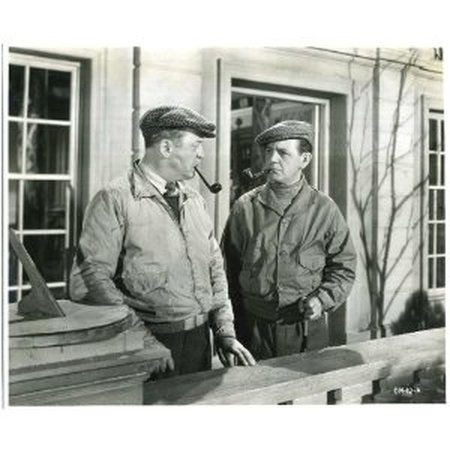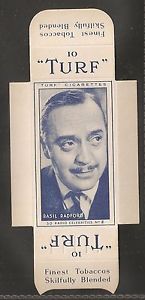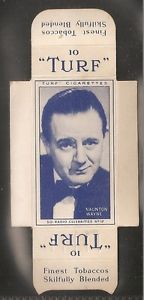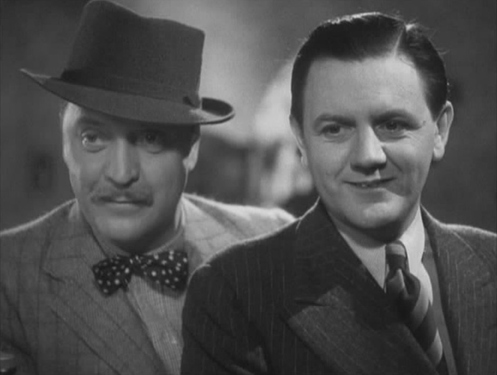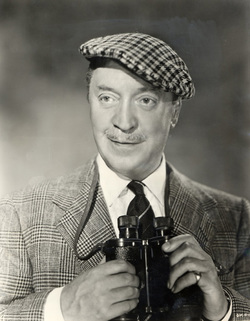|
Charters and Caldicott |
*** Latest Updates ***
Night Train to Munich - more cast names and bio links added. Crook's Tour screenshots added As War Begins - new Charters and Caldicott book published |
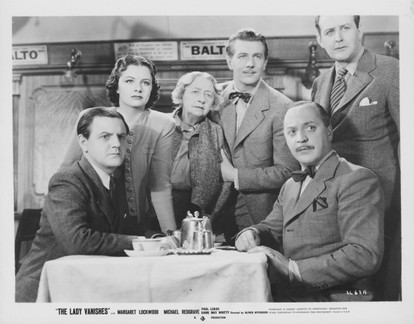 Charters and Caldicott were two movie characters played by Basil Radford and Naunton Wayne, originally in Hitchcock's The Lady Vanishes (1938) and followed shortly after by Night Train to Munich (1940) and Crook's Tour (1941) Charters and Caldicott were two movie characters played by Basil Radford and Naunton Wayne, originally in Hitchcock's The Lady Vanishes (1938) and followed shortly after by Night Train to Munich (1940) and Crook's Tour (1941)
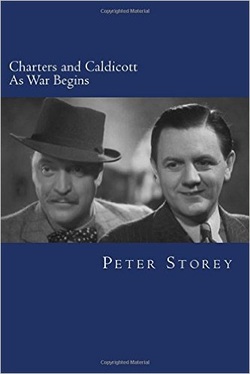
New
Charters and Caldicott - As War Begins covers the period in Charters’ and Caldicott’s screen life between 1938 and 1943 covering their first four film appearances - The Lady Vanishes, Night Train To Munich, Crook’s Tour and Millions Like Us - all classic films. This book brings together - for the very first time - all the scenes that they appeared in - telling the story of what Charters and Caldicott saw, what they said and what they understood to be happening. It tells the humorous way that Charters and Caldicott saw the world and the funny and exciting adventures that happened to them during this very turbulent time in world history. To purchase the book, click on the link below https://www.amazon.co.uk/Charters-Caldicott-As-War-Begins/dp/151777876X/ref=sr_1_2?crid=3W3UU8LF7M8J6&dib=eyJ2IjoiMSJ9.7oeU2ozwVdIYpVHx0Vje62ehAO0WKO9vPQeM_CgzpPkgbfWL3JQ6YaqvJAauecTC.BLFGHgVX2NtW85S1QHBfl5sVsRj0hxHl-BJIGH0Z3pM&dib_tag=se&keywords=charters+and+caldicott&nsdOptOutParam=true&qid=1736790271&s=books&sprefix=charters+and+caldicott%2Cstripbooks%2C66&sr=1-2
Radio appearances The two characters played by Basil Radford and Naunton Wayne had a flourishing radio career in addition to their many film appearances. Paired as similar characters to their movie roles, they performed in several radio shows. Their final appearance together was in 1952's Rogue Gallery; the pairing tragically brought to an end when Basil Radford collapsed in mid production and tragically died of an heart attack. An image of the an article from 152, prior to Radford's death is reproduced below, alongside the text. Cigarette Cards Cigarette cards were collectable trade cards issued by tobacco manufacturers to stiffen cigarette packaging and advertise cigarette brands. The two images below, featuring Basil Radford and Naunton Wayne were issued in the early 1950s by Carreras Cigarettes. The cards were issued in sets of a particular theme, sometimes as many as 50 or 100 in each particular set. These two were from Carreras Radio and TV Favourites set TV Appearance Charters and Caldicott made a TV aapearance in a 1985 BBC mystery series titled Charters and Caldicott but updated to the 1980s. It featured six 50 minute episodes broadcast on BBC1 from 10 January to 14 February 1985. The story shows the pair in their retirement. Charters is a widower living in a cottage near Reigate whilst Caldicott lives in Viceroy Mansions in Marleybone. Charters and Caldicott regulalry meet up in London; Charters travels to his Pall Mall club via a Green Line bus (hailing it on the street as if it were a taxi). The TV series has Charters and Caldicott as retired from the 'Foreign Services. However, Sidney Gilliat (of Launder and Gilliat - the creators of Charters and Caldicott) was not happy about how the characters had developed or were being represented and consequently wrote to the national press expressing his surprise and hence disapproval. This website is operated as a fans appreciation of the two great movie characters of Charters and Caldicott. By purchasing your Charters and Caldicott DVDs, posters and other movie memorabillia from our retail partners (use the links provided) you will help to keep this website running. Thank you for your continued support |
Charters and Caldicott are amongst film history's most famous and favourite comedy duo. Full of English idiosyncrasies, Charters and Caldicott represent a bygone era of the 1930's and 1940's. These two English gentlemen are happy being English, have a love of cricket and are sticklers for upholding proper standards of dress, decorum and behaviour.
Whilst they frequently travel around Europe, they are generally clueless about foreigners and their language and customs. Charters and Caldicott, played brilliantly by Basil Radford and Naunton Wayne, first appeared in Hitchcock's The Lady Vanishes; the characters were created by Frank Launder and Sidney Gilliat . The duo, whilst well groomed and educated at Oxford, were snobbish and self-regarding. At first glance they appear as a pair of bumbling upper class fools travelling around Europe ambivalent to the events developing around them in the period leading up to the second world war and during the period known as the 'Phoney War'. It appears as though they were dreamt up by the German high command as a derogatory cameo of English foolishness. What they actually reflect, is the British stiff upper lip in the face of adversity; they move almost seamlessly from their own cricket obsessed world to become enduring defenders of the British way of life by directly engaging the enemies in whichever adventure they get caught up in. Their dry humour, gently making light of foreigners is an absolute delight to watch. Wherever they are, Charters and Caldicott only want to be left alone in their own private English way. Mostly, they manage to travel, enjoying their own company and conversations of cricket matches played and yet to be played. When events around them come to the fore, they are initially reluctant to become involved, in the fear that they may be delayed to get to watch their next cricket match. But each time, their sense of fair play overcome any initial doubts they have and they come to defend the defenceless, quietly becoming the heroes of the hour. Idiosyncratic as they are, Charters and Caldcott, retire quietly back to their world of cricket and conversations of past glories on the crease. In truth, and behind their unstated humour, they represent how Britain alone, stood up to the might of the German Third Reich jack booting across Europe. https://x.com/chartersandc?mx=2
Film appearances Following their first appearance in Alfred Hitchcock's The Lady Vanishes in 1938,, they proved popular with audiences and returned in the Gilliat-and-Launder films Night Train to Munich (1940, also starring Margaret Lockwood) and Millions Like Us (1943), and in the 1941 BBC radio serials Crook's Tour (made into a film later that year also called Crook's Tour) and Secret Mission 609 (1942). Wayne and Radford played similar double acts in several more movies, such as Dead of Night (1946, directed by Charles Crichton), A Girl in a Million (1946, Francis Searle) and Quartet (1948, directed by Ralph Smart). Another recurring cricket-mad pairing played by them were Bright and Early in It's Not Cricket (1949, Alfred Roome), Helter Skelter (1949, Ralph Thomas) and Stop Press Girl (1949, Michael Barry). They also made an appearance in the Ealing classic film Passport to Pimlico (1949) where they played the two civil servants Gregg and Starker charged with the responsibility of resolving the differences of the breakaway state. It is also known that they were intended to reappear as Charters and Caldicott in I See a Dark Stranger (1945, Launder), but the actors and producers couldn't agree on the larger roles that Radford and Wayne demanded. This resulted in the actors opting out of the film and consequently two similar but differently named characters were substituted. However, this disagreement left Basil Radford and Naunton Wayne contractually prevented from portraying the characters under the names "Charters" and "Caldicott". Subsequent films with the two actors as the same characters as Charters and Caldicott but with different names. Carol Reed, when preparing for The Third Man (1949) movie also seriously considered using Radford and Wayne as the Charters and Caldicott characters again - alas it was not to be. The script prepared by Graham Greene was amended and the parts merged into one - played by Wilfred Hyde-White. Basil Radford and Naunton Wayne made a number of stage appearances as characters similar to those of Charters and Caldicott. OBITUARIES
|
